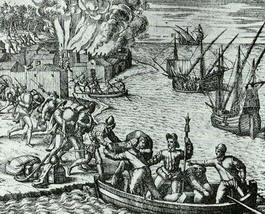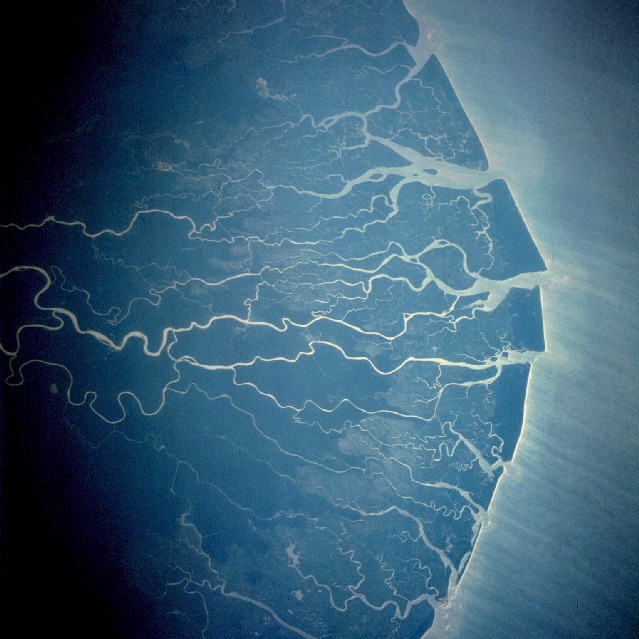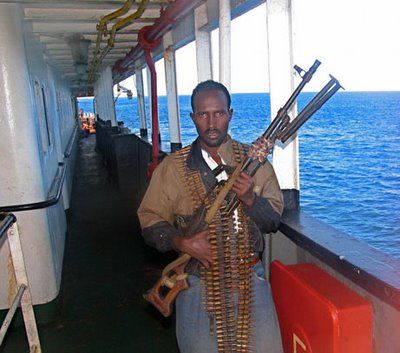Monday was “international talk like a pirate day,” this is the one day of the year when you might hear people using words like “matey” or “arrrrrrrrgh” – but you must also remember that pirates still exist today, and not the peg-legged, or parrot on the shoulder kind. Modern pirates pose a real menace to commercial shipping and cause millions of dollars in damages and dozens of deaths each year.
Thankfully, the number of pirates and pirate related incidents have been in decline in recent years, and are now at their lowest since the 90’s according to the United Nations’ International Maritime Organization. If you really wanted to talk like a pirate today it would sound nothing like Captain Jack Sparrow; you would need to learn Indonesian, since most piracy nowadays takes place around Indonesia.
Holidays like Talk like a Pirate Day put a real emphasis on a romanticized version of maritime piracy that would be unrecognizable to the sailors who fall victim to pirates today.

Let us take an incident in 2009 for instance; pirates that were wielding knives and hammers boarded a yacht named Mr. Bean. The British couple aboard were taken hostage; the wife was held for 12 hours and suffered severe injuries, whilst her husband was killed and dumped overboard.
In the last decade alone there have been 7,100 incidents of piracy and 100 of these have resulted in the death of at least one person, according to the data given by the International Maritime Organization.
More often than not, pirates will sneak onto docked vessels and make off with the cargo before the crews are aware of it.

It is also surprising just how much pirates affect the global economy. Pirate attacks can cost $7 billion a year in lost cargo and pirate avoidance strategies, like increasing speed, will also burn much more fuel. The good news is that since countries and companies have fought back, that cost has dropped to $1.3 billion last year.
In 2011, piracy reached its peak when Somali pirates attacked hundreds of vessels off the coast of Africa each year. Thankfully the pirate activity has been reduced due to counter-piracy operations and military intervention by a broad coalition of nations.

With the improvement of dock security and military responses in Indonesia, the number of incidents has been cut in half so far this year.
Even with the recent strides, however, piracy is still a big problem in the Gulf of Guinea, which is off the coast of Nigeria. Rather than taking over oil tankers, they have begun to take crews and hold them for ransom payments, according to the International Maritime Bureau.
While the famous captains old, like Blackbeard, are resting in Davy Jones’ locker, it seems like the world won’t be free of pirates for a long time.
